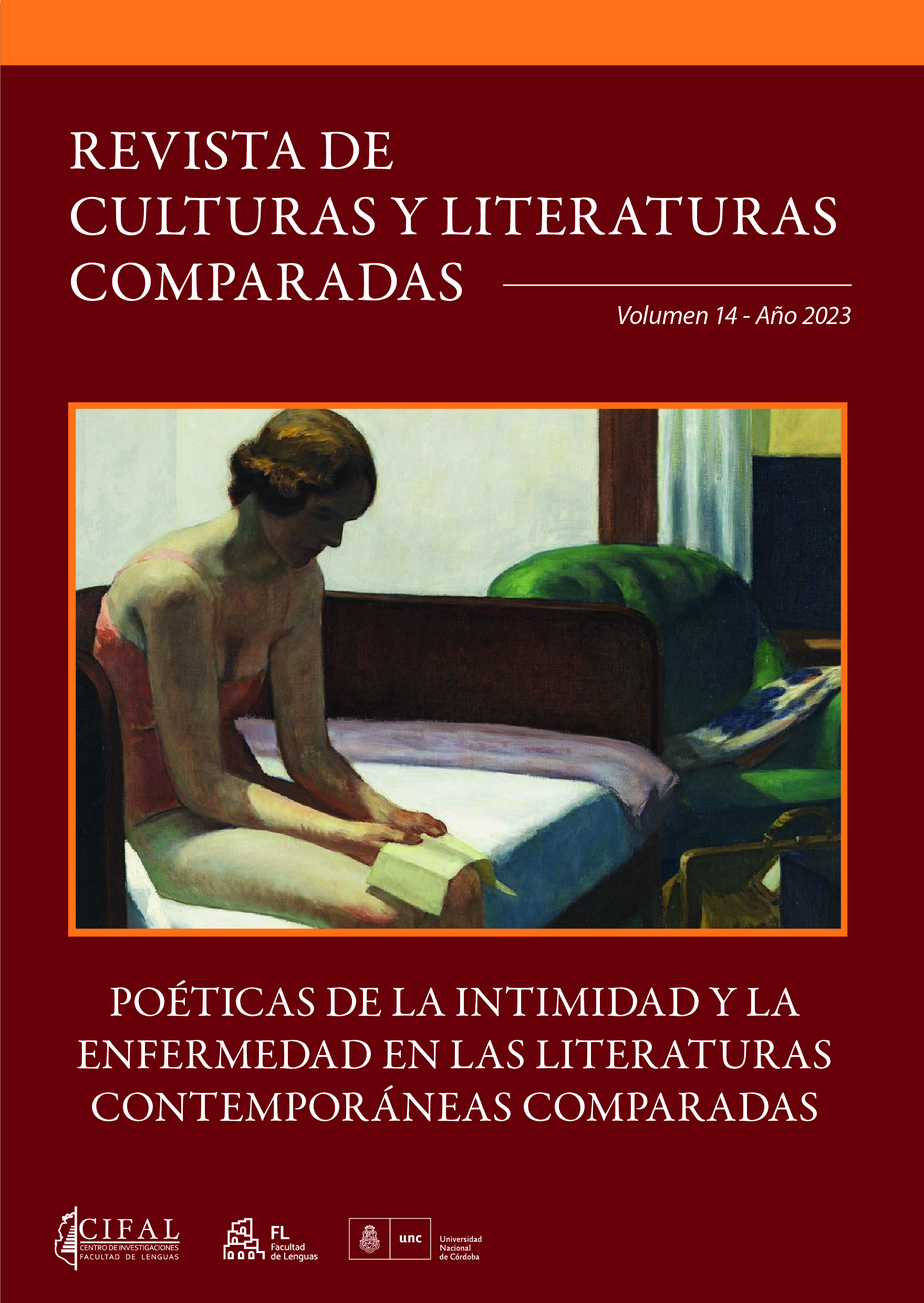On poetry and the evil of living: Amelia Rosselli and Hilda Hilst, a dialogue
Keywords:
Amelia Rosselli, Hilda Hilst, poetry, trauma, death driveAbstract
The article aims to bring into contact the female poetry of two brilliant poets: Amelia Rosselli and Hilda Hilst. Each one, in their own way and style of writing and thinking about poetry, with peculiar life paths and stories, thematize love as desire, the life drive and the death drive, Eros and Thanatos, showing that the "most intimate and profound moments of individual experience are capable of generating a poetry of disquieting poetic force" (Bosi, 1997). In Rosselli, the trauma generated by the death of her father gave rise to irreparable psychic suffering, persecution manias and obsessive delusions that tormented her throughout her life and led her to constant hospitalizations, resulting in her suicide. The story of her poetic writing is intertwined with the story of her own life. In Hilst, desire, associated with the death drive, appears represented, as in Rosselli, in the constant dialogue with the dead, in the evocation of classical myths, wrapped in an erotic and mystical, oneiric and mnemonic atmosphere, which produces poetry that is embodied through a vacillating, fragmented, obsessive and deeply vigorous writing.
Downloads
References
Albuquerque, Gabriel. A. S. Deus, Amor, Morte e as atitudes líricas na poesia de Hilda Hilst. Tese de Doutorado FFLCH/USP, 2002
Annovi, Gian Maria. Altri corpi. Poesia e corporalità negli anni Sessanta. Bologna: Gedit, 2008.
Benjamin, Walter. Magia e técnica. Arte e política. Ensaios sobre literatura e história da cultura. Trad. Sergio Paulo Rouanet. 7ª. ed. São Paulo: Ed. Brasiliense, 1994. (Obras escolhidas, vol.1).
Bosi, Alfredo. O ser e o tempo da poesia. São Paulo: Cultrix, 1997.
Cantori, Valentina. Seis poemas de Amelia Rosselli. Disponível em: https://escamandro.wordpress.com/2021/10/18/variacoes-belicas-seis-poemas-de-amelia-rosselli-por-valentina-cantori/
---. “Hilda Hilst. Erotismo e religiosità”. In: Poesia. Nuova Serie. N.12. Crocetti Editore, 31/03/2022.
Drumond de Andrade, C. “Os mortos de sobrecasaca”. In: Sentimento do mundo. São Paulo: Companhia das Letras, 2012.
Freud, Sigmund. “Além do princípio do prazer”. In: Obras psicológicas completas de Sigmund Freud: edição standard brasileira. Rio de Janeiro: Imago, 1996a [1920]. p. 11-76.
Hilst, Hilda. Da poesia. São Paulo: Companhia das Letras, 2017.
Pacella, Maria. La poesia di Amelia Rosselli. In Revista de Italianística, n. X-XI, 2005.
---. Poesia, identità e trilinguismo in Amelia Rosselli. In: Revista de Italianística, n. XIV, 2006.
Pasolini, Pier Paolo. Introduzione. In: Rosselli, A. Variazioni belliche. Roma: Fondazione Piazzole di Roma, 1995.
---. “Notizia su Amelia Rosselli”. In: Saggi sulla letteratura e sull’arte. Org. Walter Siti e Stefano De Laude. Milano: Mondadori 1999.
Prete, Antonio. Il cielo nascosto. Grammatica dell’interiorità. Torino: Bollati Boringhieri, 2016.
Princiotta, Carmelo. Dizionario Biografico degli Italiani - Vol 88 (2017).
Rosselli, Amelia. Variazioni belliche. Org. Emmanuela Tandello. 5°. ed. Milano: Garzanti, 2023.
---. Variações bélicas | Variazioni belliche. Trad. Cláudia Tavares. (n.t.), n. 15, vol. especial, 2020, pp. 320-341. Disponível em: https://www.notadotradutor.com/previas/(n.t.)_Amelia_Rosselli.html
Zorat, Ambra. La poesia femminile italiana dagli anni settanta a oggi. Percorsi di analisi testuale. Université Paris IV Sorbonne/Università degli Studi di Trieste, 2009.
Downloads
Published
Issue
Section
License

This work is licensed under a Creative Commons Attribution-NonCommercial-NoDerivatives 4.0 International License.
Aquellos/as autores/as que tengan publicaciones con esta revista, aceptan los términos siguientes:
a) Los/as autores/as conservarán sus derechos de autor y garantizarán a la revista el derecho de primera publicación de su obra, el cual estará simultáneamente sujeto a la Licencia de reconocimiento de Creative Commons.
b) La cesión de derechos no exclusivos implica que la publicación de los artículos en la presente revista no quita la posibilidad o el derecho al autor/a de publicar su obra de manera posterior en otras revistas u órganos editoriales y la autorización por parte de los/as autores/as para que el trabajo sea depositado en los repositorios institucionales, tales como el Portal de Revistas de la Universidad Nacional de Córdoba.



